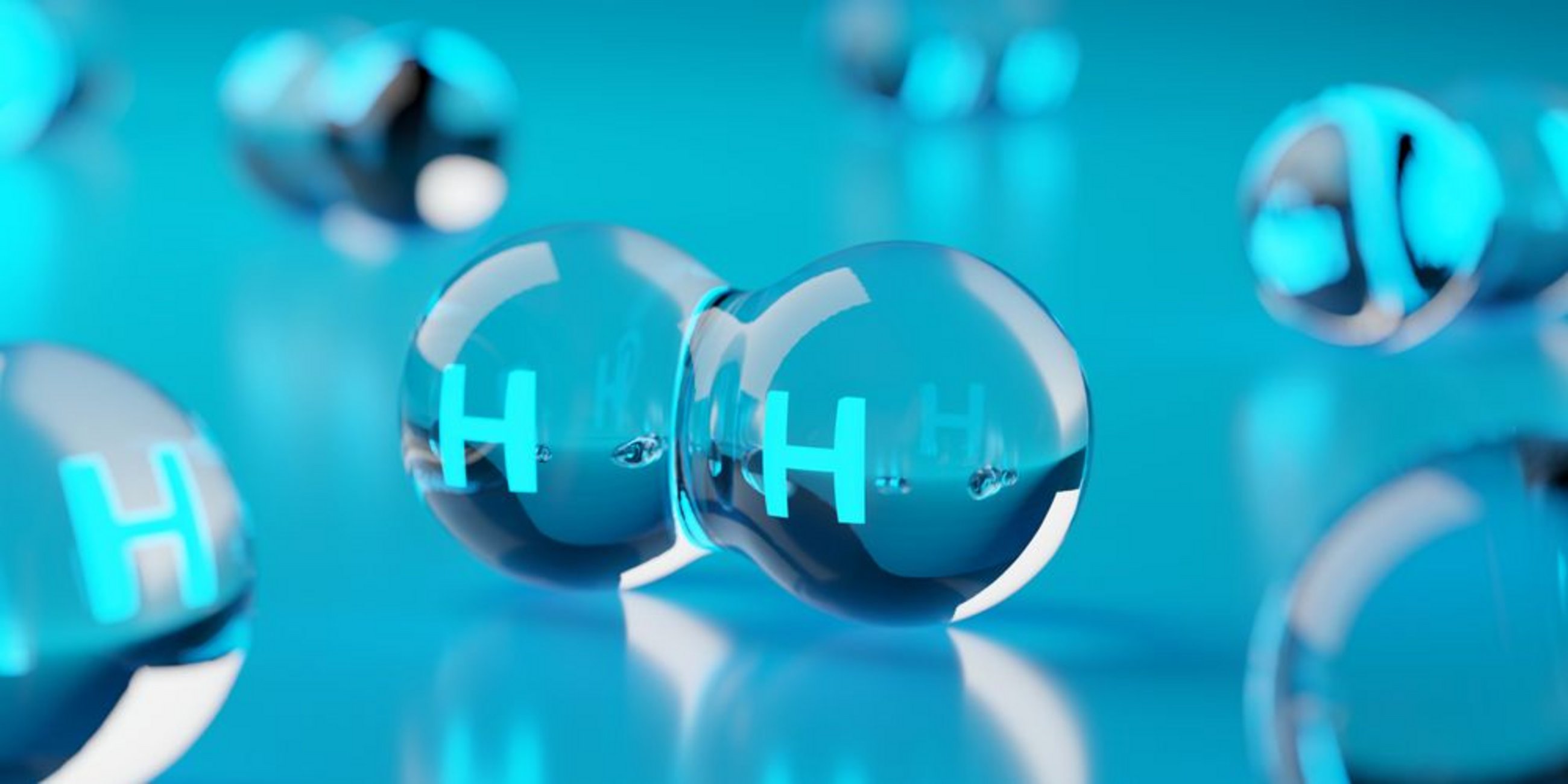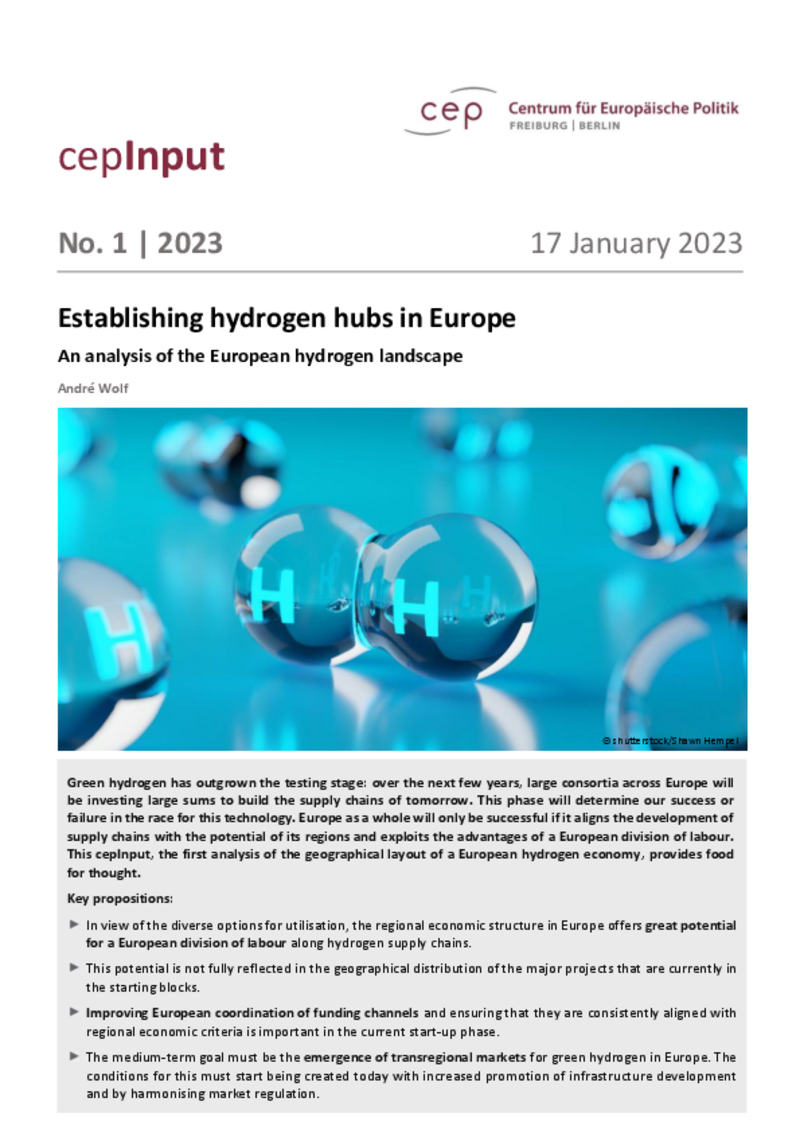
Energy
Establishing Hydrogen Hubs in Europe (cepInput)
cepInput
"The Netherlands and the neighbouring German state of North Rhine-Westphalia are ideal hydrogen consumers in terms of their industrial structure. At the same time, due to the nearby North Sea, both regions offer the greatest potential in Europe for future offshore parks whose wind energy can be used to produce hydrogen," explains André Wolf. The cep expert has presented the only analysis to date on regional opportunities for the European hydrogen economy.
In Wolf's opinion, the German-Dutch cluster – apart from some Mediterranean regions – offers the best conditions for creating a European Hydrogen Valley. "France and Italy, with the economic centres around Paris and around Milan and Turin, must be careful not to lose out on hydrogen," warns the cep expert.
Wolf sees another danger in excessive regulation. The path towards economic viability could be slowed down by overly rigid supraregional infrastructure restrictions. Wolf therefore calls on the EU to use the necessary public funding in a targeted manner. What is needed, he says, is better spatial coordination and a more consistent orientation of the projects that are currently still funded through various channels. At the same time, the conditions for the development of a cross-border transport infrastructure should be created.
Download PDF
| Establishing Hydrogen Hubs in Europe (cepInput) (publ. 01.17.2023) | 2 MB | Download | |
 | |||



